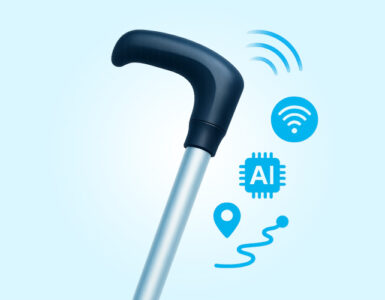Disabled persons may have health issues beyond or related to their disability that require regular administration of medications or supplements. It’s essential to maintain medicine schedules and taking the correct dose at the right time. However, some disabled people find it difficult to stay on schedule, especially if they have developmental disabilities or take multiple medications.
That’s where automatic pill dispensers fill an important role. Preloaded with the correct medications, automatic pill dispensers will aid the disabled and their caregivers by dispensing medications on schedule, usually accompanied by audible and visual reminders.
Selecting an automatic pill dispenser
Studies have shown that automatic pill dispensers have a positive effect on how well the user follows their medication schedule. Caregivers should evaluate multiple factors to select the best automatic pill dispenser.
- Setup and interfaces – Depending on the frequency of medication required, the amount of time that will be required to load pills and program the schedule is important
- Alarms and notifications – The volume and frequency of alarms – both visual and audible – should be considered in the context of the disability
- Pill volume and frequency – Some devices can dispense pills at multiple times during a single day, others can not. Consider how often medicines need to be administered when selecting a dispenser
- Remote monitoring – If you’re concerned about whether important medications are being taken on time, consider a pill dispenser that can send text or email alerts to caregivers to ensure compliance
With these criteria in mind, we’ve selected four automatic pill dispensers, ranging from inexpensive and simple to fully-automated and expensive.
MED-Q
Strictly speaking, MED-Q is not an automatic pill dispenser. Configured in the familiar shape of a pill organizer, it has two banks of pill compartments for each day of the week, and the compartment lids are lifted to access medications. What makes it different than a regular pill organizer are audible alarms that remind the patient that it’s time to take their medications, with flashing lights indicating which compartment to open.
- Pros – MED-Q is inexpensive and simple to set up. Power is provided by two AA batteries. For some disabled persons, the alarms and colored light cues suffice
- Cons – This may not offer sufficient pill security for the more profoundly disabled There’s no option for remote monitoring
- Cost – $69.95
MedReady 1700
The motorized MedReady 1700 employs an internal rotary wheel holding a tray with 28 pill dispensers. The 1700 can accommodate up to 4 different pill doses daily, and has a locking lid that prevents the disabled person from tampering with the medication in the device. A tone alerts the patient when it’s time to take their medicine.
- Pros – Locking lid keeps medicine secure. The backup battery keeps device operating during power outages. Holds up to a week of medicine, with up to four doses a day. Relatively inexpensive
- Cons – This basic model does not have flashing lights or a monitoring feature. Loading pills is a time consuming process if you require multiple different pills. Some reviewers report mechanical problems after a few months of use
- Cost – $149 (variants with more features available at a higher cost).
Livi
About the size and shape of a coffee maker, Livi holds up to 90 days of medications in separate internal compartments – no sorting necessary. Livi can be programmed to dispense the correct variety and dosage of pills at the correct time and provides text message alerts that the medication has been picked up. Visual and audio alerts remind the patient when it’s time for their medication.
- Pros – 15 large storage compartments each holding up to 90 days worth of medication. Customizable to dispense different medications at up to 24 different times day. Remote monitoring sends text messages to alert caregivers that medications have or haven’t been taken
- Cons – Expensive. Requires purchase of connectivity package for notifications (free for one year with purchase, $24.95/year afterward
- Cost – $1499, with one-year cellular connectivity and LiviCare support included ($24.95/month after one year)
MedaCube
MedaCube holds up to 90-day supply of 16 different medications in internal containers, and automatically distributes pills through interaction with a bright touchscreen. The pill dispenser connects to the internet so caregivers can easily set up schedules and check compliance. The platform will even sent non-adherence alerts to caregivers via text or email.
- Pros – Text message notifications of compliance, as well as reminders to reorder prescriptions. Barcode scanner for tracking medication loading. Tracking through internet portal available. Rent, lease, or purchase options
- Cons – Requires WiFi network for notifications and tracking. Expensive. Pill dispenser not as easily accessible as Livi
- Cost – $1499, with rent-to-own and lease options available
Ensuring compliance is essential
If you’re assisting with the care of a disabled person, one of the most important tasks you perform may be ensuring that they take prescribed medications on schedule. A well-designed automatic pill dispenser is a great way to ensure they get the medicines they need, when they need them.






























Add comment